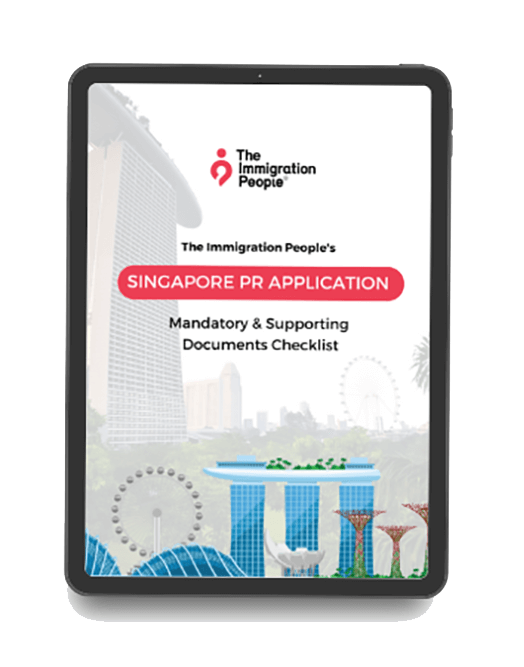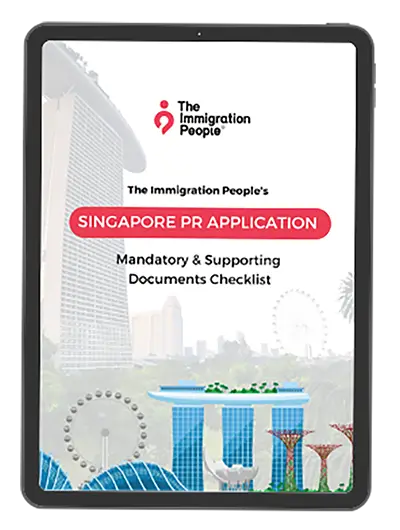新加坡,常被称为狮城,以其充满活力的文化、经济繁荣和高生活水平而闻名。然而,在收拾行囊搬到这个繁忙的国家之前,你应该先了解十个关键的事实。
1. 多元文化社会
对于中国公民来说,搬到新加坡意味着要适应多元文化的环境。尽管新加坡的大部分人口是华人,但新加坡华人文化具有受新加坡多元文化背景影响的独特特点。了解这些细微差别将使您的过渡更加顺利。在日常生活中,将会接触到来自各个民族群体的多种语言、风俗和节日,为您带来丰富的文化体验。
2. 高昂的生活成本
尽管中国的一些城市,如北京或上海,可能已足够昂贵,但新加坡的生活成本往往更高。尤其是在住房和拥有汽车方面,由于这个城市国家土地有限和严格的车辆拥有政策,成本更高。然而,中国公民可能会发现其他一些费用,如外出就餐或杂货,与国内的价格更为接近。建议在搬迁前进行详细的财务规划。
3. 语言
对于大多数中国公民来说,语言过渡应该相对顺利,因为普通话是新加坡的四种官方语言之一。然而,教学和商务的主要语言是英语,当地人常说的“新加坡英语”(Singlish)是一种将英语、马来语、福建话、潮州话和粤语融合在一起的本地克里奥尔语。虽然基本的英语知识会有帮助,但也有语言课程可供搬迁者提高语言能力。
4. 严格的法律
搬到新加坡的中国公民应该为这个国家严格的法律制度做好准备。尽管中国的规定也很严格,但新加坡以其对清洁、交通和社会行为的法律执行而闻名。例如,公共场所吐痰或售卖口香糖等行为可能会导致高额罚款。熟悉这些法律以确保合规至关重要。
5. 教育
新加坡的教育体系以其严谨和竞争性而闻名,尽管与中国对学术的关注有相似之处,对中国学生来说可能仍是一个改变。然而,新加坡的双语教育政策,其中英语和母语(可以是普通话)是必修科目,对中国学生来说可能是一个优势。对于搬到新加坡的中国家庭,也有一些中文学校,如华侨国际学校(Hwa Chong International School),提供东西方教育理念的结合。
6. 医疗
尽管中国的医疗水平多年来有了显著提高,但新加坡的医疗体系在质量和效率方面往往被认为更为优越。中国公民应该注意,在新加坡,医疗费用可能很高,尤其是对于非居民来说。因此,建议购买全面的医疗保险计划。值得一提的是,在医院和诊所中普遍使用普通话,使沟通更加容易。
7. 美食天堂
由于新加坡有大量的华人人口,中国公民会发现许多美食有熟悉的风味。当地的华人美食汲取了各种中国地方菜系的灵感,海南鸡饭、肉骨茶和点心已成为当地的最爱。然而,在新加坡生活也意味着可以轻松品尝各种不同的菜系,从马来菜和印度菜到西餐,丰富了您的就餐选择。
8. 公共交通
中国公民,特别是来自大城市的人,将欣赏新加坡高效可靠的公共交通系统。与中国许多城市常见的交通拥堵相比,在新加坡通勤通常更为简单。地铁(MRT)类似于中国的地铁系统,是新加坡公共交通系统的主干。然而,要准备好严格的公共交通规定,例如禁止吃东西或喝东西。
9. 气候
对于从中国北方或内陆地区搬来的人来说,新加坡的气候可能需要适应。与中国多样化的气候区相比,新加坡全年经历炎热潮湿的热带气候。在新加坡不会体验到四季和降雪,室内开着空调十分常见。另一方面,温暖的气候非常适合全年的户外活动。
10. 工作与生活的平衡
新加坡的工作与生活平衡可能与中国有所不同。两个国家都以勤奋的文化而闻名,但在新加坡,人们越来越重视工作与生活的平衡。这种转变体现在灵活的工作安排,如在家工作和弹性工作时间,越来越多公司机构提供此类选择。此外,新加坡各种多样化的娱乐活动,从体育和户外活动到文化活动,提升了生活质量。
结论
搬迁到新加坡可以是一次令人兴奋的冒险,提供高质量的生活、充满活力的工作环境和多元文化社会的参与机会。然而,就像搬到任何新国家一样,深入研究和了解文化、经济和社会因素非常重要。这十个事实为考虑搬到这个独特城市的任何人提供了宝贵的起点。
Frequently Asked Questions On Singapore PR Application For Spouse
Can an LTVP holder apply for Singapore PR?
The foreign spouse of a Singapore PR or citizen who is an LTVP holder can apply for Singapore PR under the sponsored scheme.
A married EP holder and LTVP holder couple can also apply for Singapore PR, with the EP holder being the main applicant.
ICA will evaluate each PR application fairly. Want to know your eligibility chances? Let us calculate for you: https://www.tip.com.sg/pr-application-e-preliminary-profile-analysis.html
What Is the Success Rate for Spouse PR Applications in Singapore?
The success rate for spouse PR applications in Singapore varies based on numerous factors, such as the applicant's qualifications, financial standing, and family ties. The ICA does not release specific success rates, as each application is assessed case by case.
Can My Spouse Work in Singapore While Waiting for The PR Application Outcome?
Your spouse can work in Singapore while waiting for the PR application outcome if they have a valid work pass, such as an Employment Pass or S Pass.
Does My Spouse Need to Be in Singapore During the Application Process?
No, your spouse does not need to be physically present in Singapore throughout the entire application process. However, if the ICA requires, they may need to be in Singapore for certain stages, such as submitting biometrics or attending an interview.
Can My Spouse's Children from A Previous Marriage Also Apply For PR?
Your spouse's children from a previous marriage can apply for PR if they have legal custody over them. You will need to provide custody documents in the PR application.
The ICA will assess their eligibility based on the child's age, relationship with the applicant, and financial support.
Can My Spouse Apply for Citizenship After Obtaining the PR Status?
Yes, after obtaining permanent residency status, your spouse can look forward to applying for Singapore Citizenship.
The selection criteria for a Singapore Citizenship application are much stricter.
They must meet minimum eligibility criteria, which typically include being a PR for at least two years and not losing the PR status due to a case of an expired Re-Entry Permit (REP).
But before considering citizenship status, we encourage keen applicants to ensure that they consistently demonstrate good character, have strong family ties, and are well financially.
Will My Spouse Need to Complete National Service If They Are PR Approved?
From our experience handling PR applications for adult male applicants (typically in their 30s and above) under Sponsored Spouse Scheme, they are generally exempted from the National Service as they are not suitable for full-time NS at that age and did not enjoy any benefits before their PR.
Under the Enlistment Act, all male Singapore Citizens and Permanent Residents, unless exempted*, must serve National Service (NS). NS-liable persons are required to register for NS upon reaching 16 and a half years old and will be scheduled for enlistment at the earliest opportunity upon reaching 18 years old.
Deferment from NS for university studies will not be granted regardless of whether such studies have begun. Those pursuing full-time GCE ‘A’ Level or Polytechnic Diploma studies (or equivalent) may be granted deferment if they meet the deferment conditions stipulated by the Ministry of Defence.
*All male applicants must access www.cmpb.gov.sg for information on NS deferment, the pre-enlistment process and Exit Permit requirements before proceeding with the application.
Can My Spouse Maintain Their Existing Citizenship After Obtaining Singapore PR?
Yes, your spouse can maintain their foreign citizenship after obtaining Singapore PR.
However, if your spouse later decides to apply for and is granted the Singapore citizenship status, they must renounce their original citizenship, as Singapore does not allow dual citizenship.
Does My Spouse Need a Job Offer in Singapore to Apply For PR?
No, a job offer is not a strict requirement for a Singapore permanent residency application under the sponsored scheme.
However, having a job or a job offer in Singapore can strengthen your spouse's PR application, demonstrating their ability to contribute to the local economy and support themselves and their family.


